Venezuela extends state of emergency to third border state
- Published
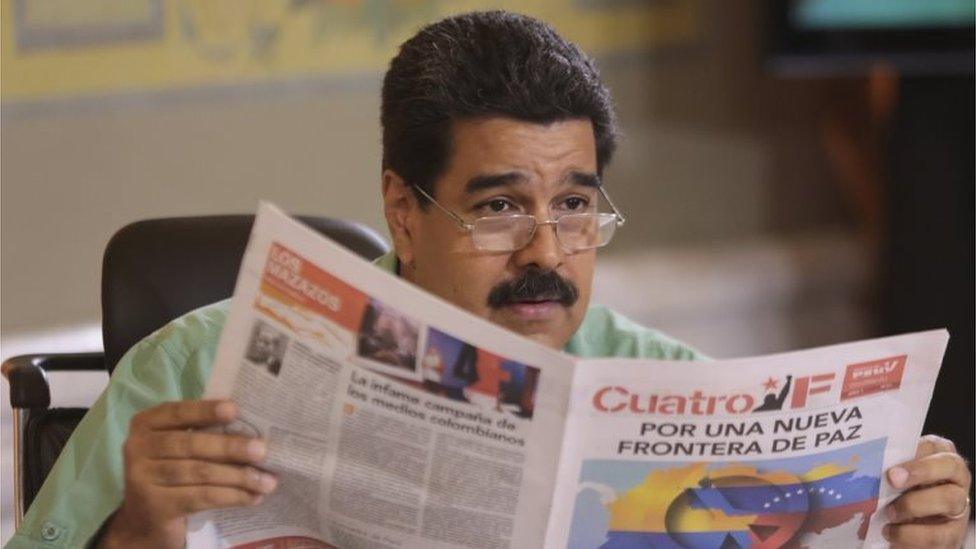
Venezuelan President Nicolas Maduro says he wants "a new peaceful border"
Venezuelan President Nicolas Maduro has announced he will extend a state of emergency to another 10 municipalities on the border with Colombia.
Three of them are in Apure state. The others are in the state of Zulia, parts of which had already been placed under a state of emergency.
The move is part of a crackdown on crime near the border, where smugglers and guerrilla groups are active.
The crackdown has heightened tensions between Venezuela and Colombia.
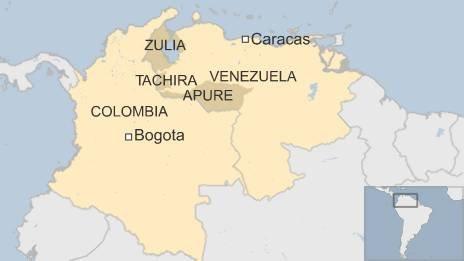
The president did not say if border posts in Apure would also be closed as they have been in the states of Tachira and Zulia.
Smugglers' haven
Under the Venezuelan constitution, a state of emergency can be declared if the security of the country, its citizens or its institutions are at risk.
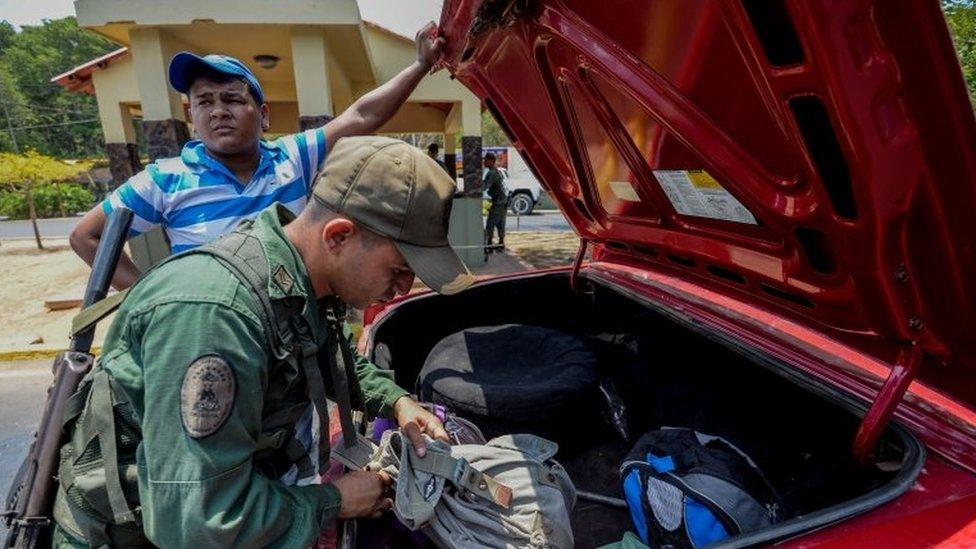
Venezuela is trying to stop people from smuggling subsidised goods across the border
It temporarily restricts some constitutional rights and allows security forces to search homes without a warrant.
President Maduro took the measure after three soldiers and a civilian were injured in an attack in San Antonio del Tachira near the border last month.
The 2,200km-long border (1,400 miles) between is porous and there has historically been a steady flow of people both ways.
It is also a haven for smugglers, who make an easy profit buying subsidised goods cheaply in Venezuela and selling them at much higher prices in Colombia.
The Venezuelan government estimates that up to 40% of goods it subsidises are lost to smuggling, exacerbating shortages of key products.
Criminal hotspot
Locals have also complained about being extorted by gangs and Colombia's left-wing guerrilla groups.
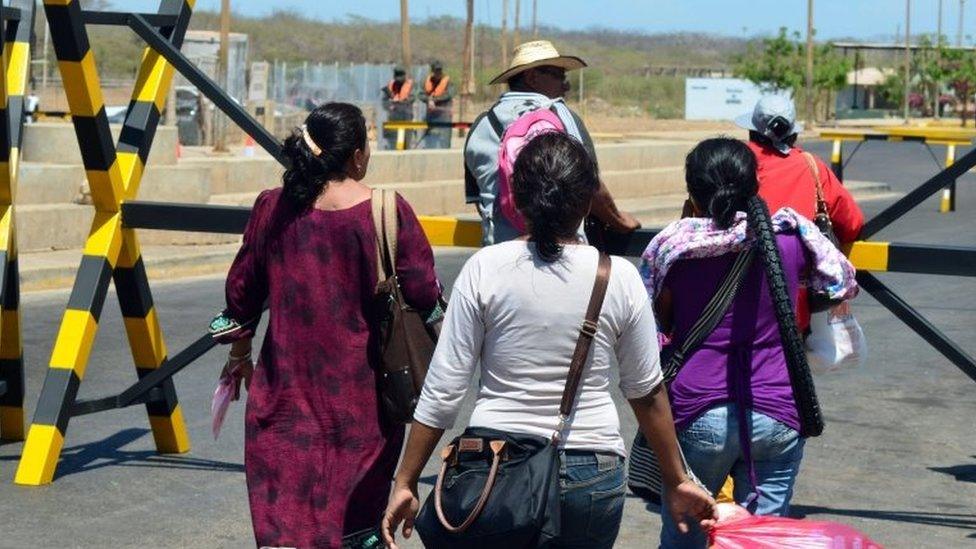
Paraguachon is one of the latest border posts to be closed
Last month Venezuelan security forces deported about 1,400 Colombians they said were living in Venezuela illegally.
Another 20,000 are estimated to have left Venezuela out of fear of deportation.
Some said they had been mistreated by the Venezuelan security forces, prompting Colombia to recall its ambassador from Caracas in protest. Venezuela later recalled its ambassador from Bogota.
Tension between the two neighbours rose further when Colombia said that Venezuelan military jets had made incursions into Colombian airspace on Saturday and Sunday.
Venezuelan Foreign Minister Delcy Rodriguez said that there was no evidence of any such incursions.
Writing on Twitter [in Spanish], external, she also said that she was "concerned about the systematic tendency of the Colombian government to invent incidents that don't exist to hurt relations".
But the tone used by the two countries' leaders did soften on Tuesday.
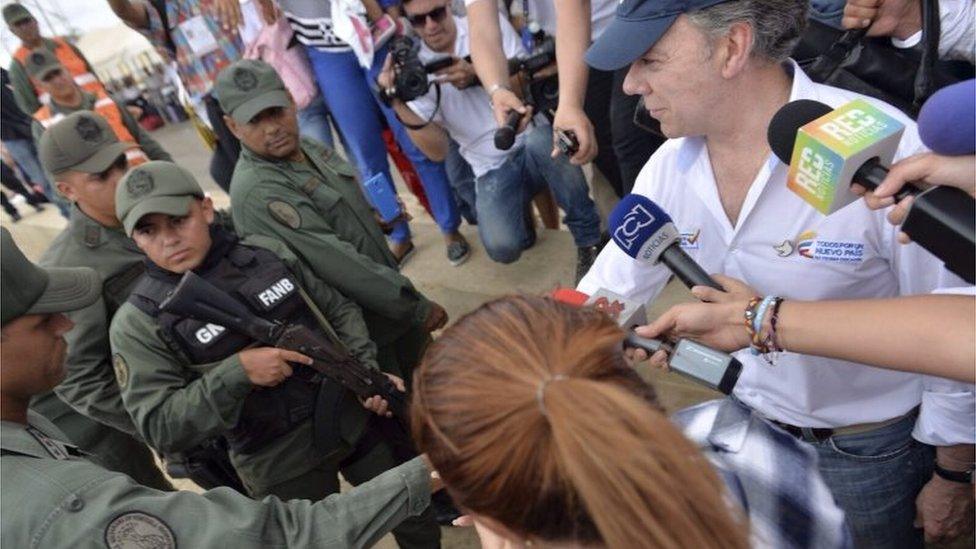
On Tuesday, President Santos shook hands with a member of Venezuela's Bolivarian National Guard
Speaking in the border town of Paraguachon, Colombian President Juan Manuel Santos said progress had been made on a number of issues, including the reunification of families separated by the closure of the border.
He said that an important step had been taken on the road to a meeting between the two presidents.
Speaking on his television programme on Tuesday, President Maduro said he was ready to meet his Colombian counterpart "wherever, whenever and by any means".